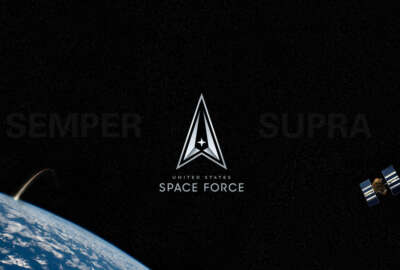Several years in, and still no national guard component for the Space Force. What Space Force got in the most recent Defense Authorization bill is a feasibility study. For what that means, the Federal Drive with Tom Temin spoke with Brig. Gen. Michael Bruno from the Colorado National Guard.
Tom Temin All right. And what is you’re feeling about this development in the NDAA? Because a lot of people from Space Force and Air Force have frankly said it’s about time for a National Guard there.
Brig. Gen. Michael Bruno and I completely agree with what you’re saying. So first, I do need to say that up front that my opinions are my own. Do not reflect the opinions of the Colorado National Guard, the United States Air Force, or the Department of Defense. The 2024 NDAA. The one thing it didn’t do is it did not establish a Space National Guard. It does, however, require the Secretary of Defense to conduct an interim briefing by the 1st of February and a study by the 1st of March to assess the feasibility and advisability of moving all Air National Guard space functions to the Space Force. This assessment will analyze three courses of actions, that is, maintain the status quo. What we’re doing today supporting space missions from the Air National Guard. Move all Air National Guard space assets to the US Space Force or and hopefully the ORS. What we’re looking for is create a space National Guard.
Tom Temin Is there anything to be learned, do you think from like the Marine Corps, which is kind of like the Space Force in some respects, that it has a nominally at least a parent organization called the Navy and Space Force came out of the Air Force. Is there anything that’s analog there that could be used for these learnings?
Brig. Gen. Michael Bruno So there is. So, you’re absolutely right. The way the Space Force works now is they’re all notable. They do all the operations side of the house, while Air Force does most of the support functions for them. So medical defense, same as the Navy does for the Marine Corps. What’s different, though, is under the new NDAA, Space Force is going to become a branch without a service component. So, they are going to this brand new, you know, one time it was called the Space Force Personnel Management Act. But they’re going to this brand-new construct where they don’t have a component. People will serve in an active status, inactive status, or a reserve status. So, this is an experiment in a new way of doing business for a branch of the military.
Tom Temin So what does that mean then for a National Guard possibility?
Brig. Gen. Michael Bruno So we think that they can do both at the same time. So, the Space Force Personnel Management Act is pretty much encompassing the reserve status of having a Space Force reserve. So, you have those folks that are doing active status, those folks that are doing an inactive status, and then the retirees. But you could also have a Space National Guard, which would be your surge to war capability. We are already doing that surge toward capability supporting combat commanders. So that would give you that capability so they could both function together. And that’s our hope is that’s what happens.
Tom Temin Maybe it’s good to review Space Force’s operational responsibilities now. And how that could translate to a reserve force that would be called up. I mean, what would need to be augmented, for example, in a national emergency with Space Force? Because, again, there’s no kinetic operation in space quite yet.
Brig. Gen. Michael Bruno You’re absolutely correct. But currently, the National Guard does 60% of the Space Force’s electromagnetic warfare capabilities. And this is both uplink and downlink from satellites, either disrupting or putting things into the system. And that is a capability that COCOM commanders really have an appetite for. And since we’re already doing 60% of that mission, why not keep us in the fold and continue to have us do that mission?
Tom Temin We’re speaking with Brigadier General Michael Bruno. He’s director of the Joint Staff for the Colorado National Guard. And in its statement on this development in the NDAA and not getting the Space Force National Guard this year again, the National Guard Association said that the analysis called for is mostly complete. And they also said that transferring roughly 1000 Air National Guard space units in eight states and territories to a single component Space Force is not feasible. Unit commanders have surveyed their personnel in the majority and want to stay in the National Guard. So, what’s going on with that statement?
Brig. Gen. Michael Bruno the statement that individuals want to stay with the National Guard. Yeah, absolutely. So, we recently conducted another survey, and about 80% of them want to stay in the National Guard. These are individuals that live in their communities, want to continue to serve both federally and at the state level. So approximately 20% would be willing to transfer to this new no component branch of service, so that 80% would have to be recruited and then retrained to do the missions that we currently do. The Guard’s been doing these missions for approximately 27 years, and that goes back to the 137th out of Greeley, Colorado. So, we have some of the most senior space professionals doing space operations at this time. So, if they create the Space Force, don’t create a Space National Guard and only get 20% of our force, they’ve got to make up that other 80% by recruiting and training those individuals. And it’s our opinion, and it’s the National Guard Bureau opinion out of the Pentagon, that it would take 7 to 10 years to develop a space professional from scratch to where we currently are. So, there’s a capability and a readiness gap right there for 7 to 10 years.
Tom Temin Yeah. And there’s a considerable opportunity cost, I guess then for those 8 to 10 years in real dollars.
Brig. Gen. Michael Bruno Absolutely. So unfortunately, that cost is immeasurable. National Guard Bureau has put out some numbers. And again, National Guard Bureau out of the Pentagon, that it will cost of approximately $1 billion to transfer everything that is currently done in the Air National Guard space missions to the US Space Force. And this includes all the training and also the equipment, the facilities that would be required and everything that goes with it. So, $1 billion and that seven to ten years’ worth of readiness. They’ve also figured if we just create a Space National Guard, take those 1000 service members and 14 units in currently it’s only seven states. So take those individuals and change them to Space National Guard. It would cost about $250,000 versus a billion. We’re talking changing name tapes and changing signage and guidance at the unit level. That’s your cost.
Tom Temin All right. So what is the course next just to wait for that study. And what do we know about who’s going to conduct it and who’s going to evaluate it.
Brig. Gen. Michael Bruno So that’s an interesting question. So the study is actually being done by the Department of Defense. The requirement that came out of Congress is for the Secretary of Defense to do this study. So it will be interesting. And again, this is where we go that my opinions don’t reflect those of Colorado National Guard, Air Force or DoD. It will be interesting if that report even sees the light of day. And the reason being is the White House’s Office of Management and Budget has said there will not be a Space National Guard. They don’t support a Space National Guard. Well, the Secretary of Defense works for the administration. He works for the white House. So, when the white House OMB says there will not be a Space National Guard, it’s hard for them to push anything out that says anything against that position. So, we’ll see if anything comes out of that. The analysis again done by DoD. And then it’s supposed to be presented to Congress. So, Congress’s who’s going to look at it and then make a determination. And that’s really what we’re looking for is for Congress to make the determination is what’s the best thing for the United States and the citizens right now. And I still think it’s established, the Space National Guard today.






